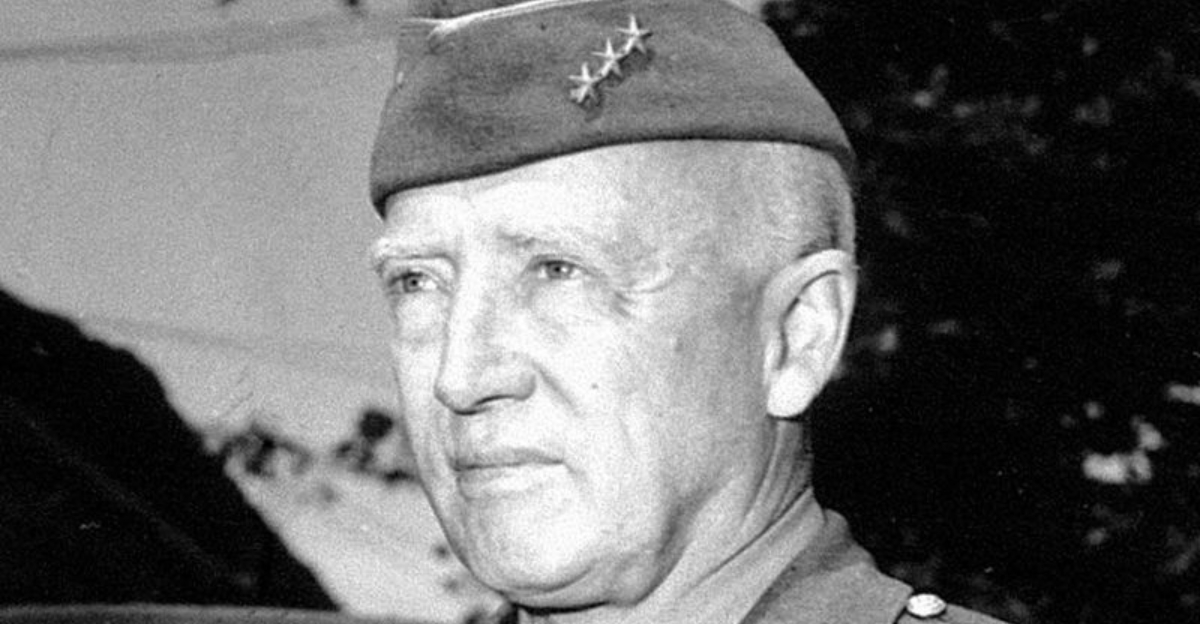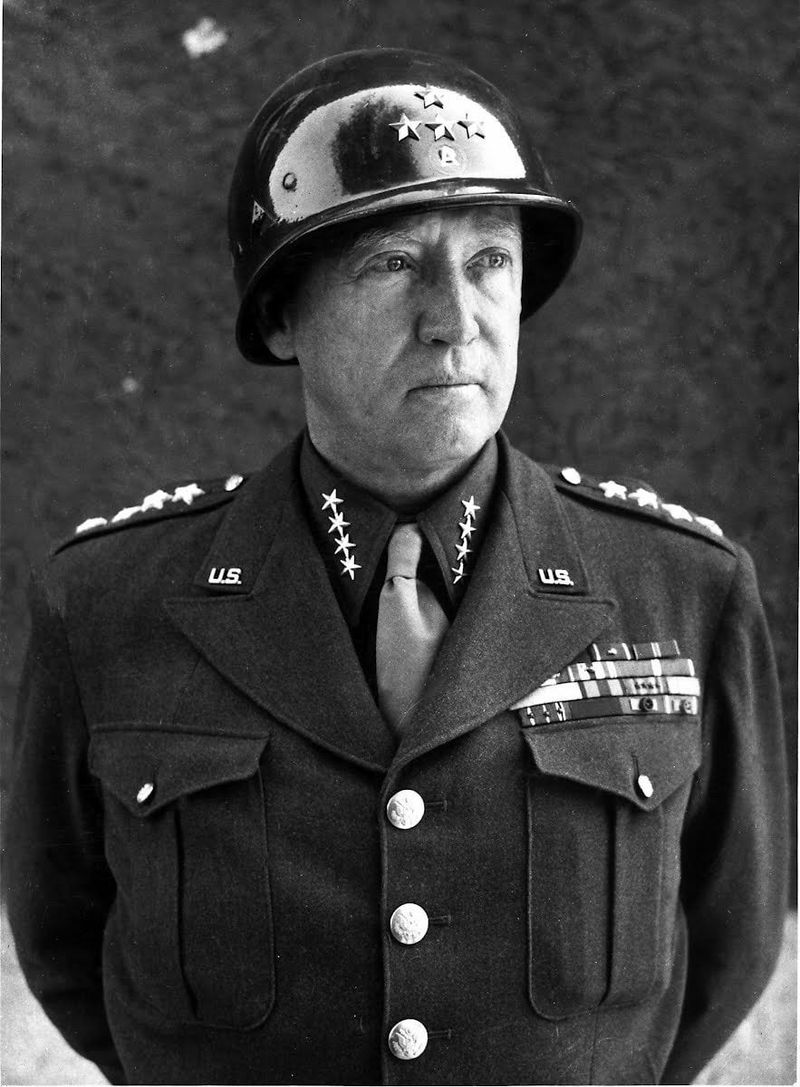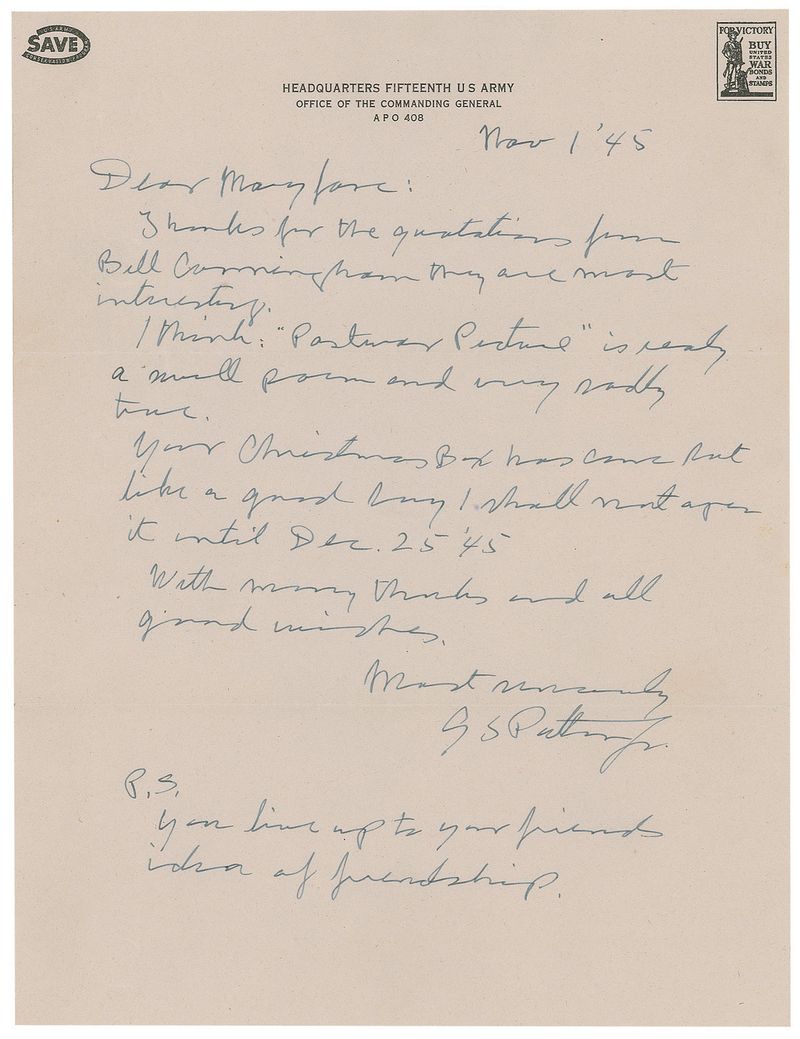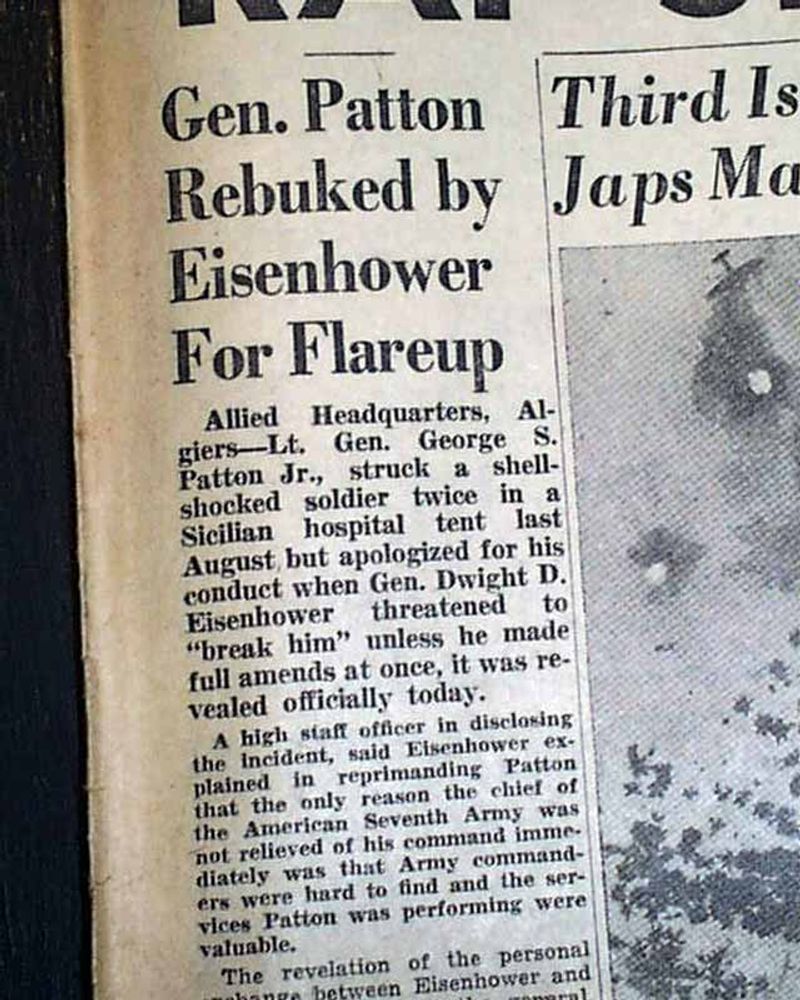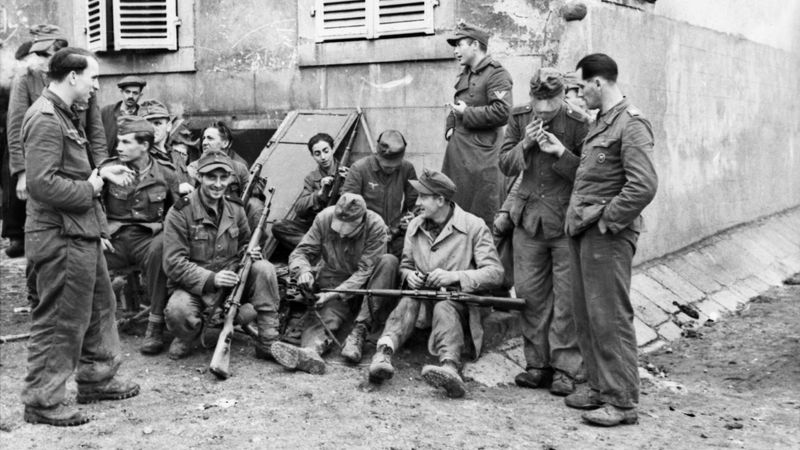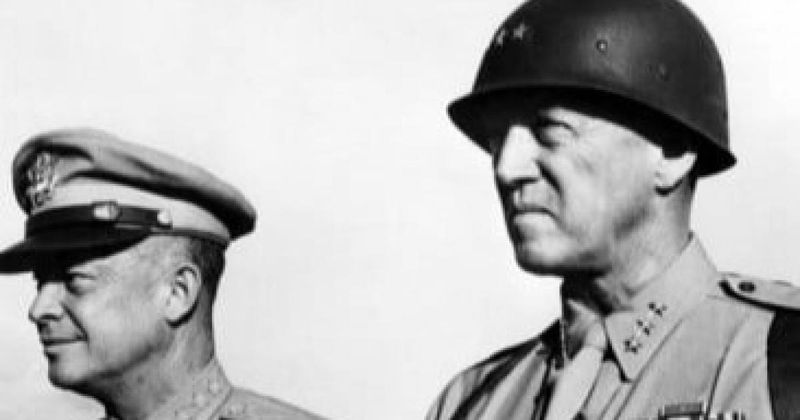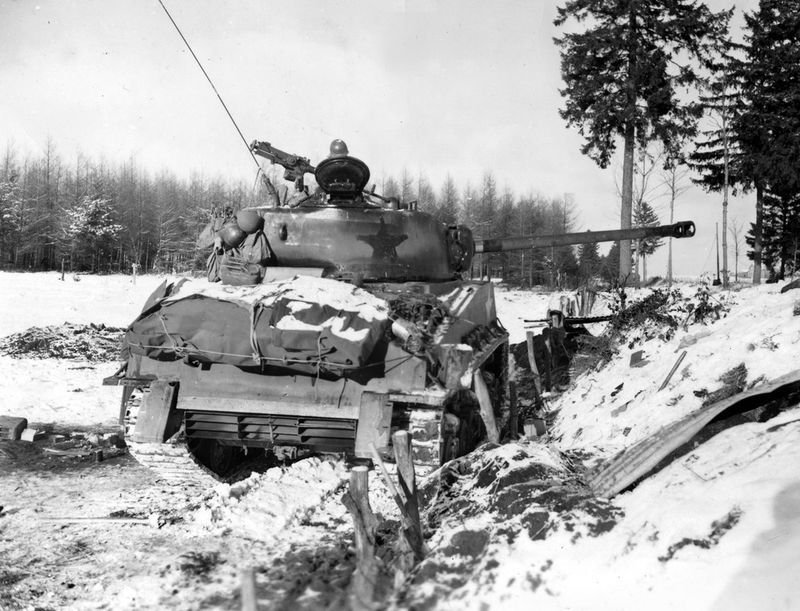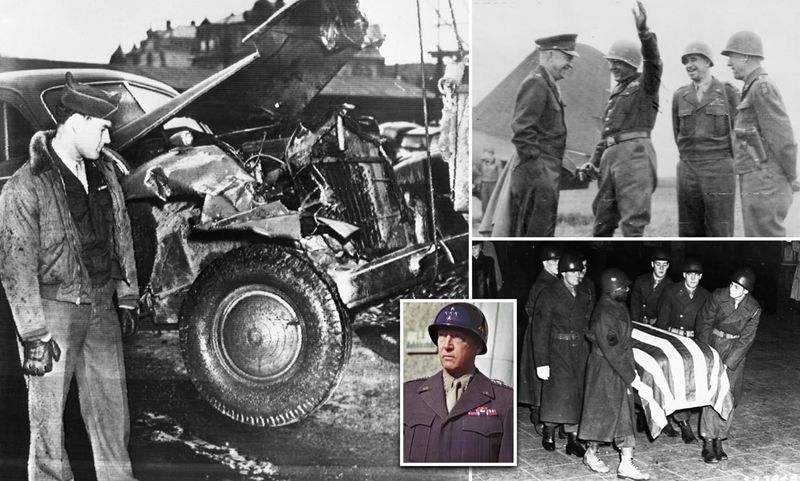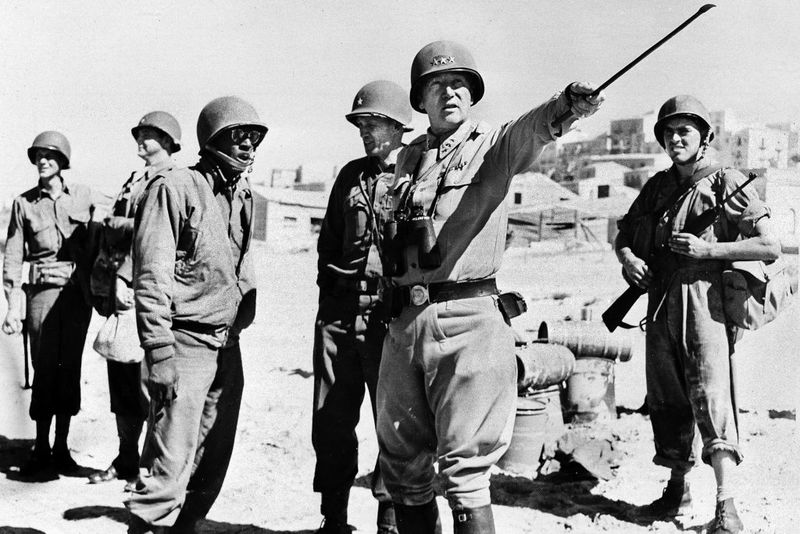General George S. Patton remains one of America’s most famous military leaders, known for his bold tactics and fierce personality during World War II.
Behind the legendary commander we see in movies and history books lies a more complex figure with surprising beliefs and controversial actions.
These lesser-known aspects of Patton’s life reveal a man far more fascinating and complicated than most history lessons suggest.
1. A Soul Through The Ages
Patton kept a journal filled with vivid memories he believed came from past lives as warriors throughout history. He recalled details of fighting with Romans against Carthage and riding with Napoleon’s cavalry at Waterloo.
These weren’t just casual musings. Patton genuinely believed his military genius came from centuries of battlefield experience carried through reincarnation. Once, while touring ancient battlefields in Sicily, he stunned his staff by describing the terrain as it had been thousands of years earlier.
This spiritual side shaped his fearless approach to combat—Patton believed a warrior’s soul never truly dies but continues its journey through time.
2. The Warrior Poet
Few who served under Patton’s strict command realized their tough-talking general filled notebooks with sensitive poetry about war and mortality. His verses revealed a thoughtful man who contemplated the deeper meaning behind the chaos of battle.
One poem titled “Through a Glass, Darkly” explored his belief in reincarnation. Another called “Courage” celebrated the ordinary soldier’s bravery. Patton rarely shared these writings publicly, keeping this reflective side hidden behind his famous swagger and profanity.
His poetry showed remarkable vulnerability, contrasting sharply with his cultivated image as America’s most aggressive general.
3. Cold War Prophet
Months before his death in 1945, Patton warned anyone who would listen about the Soviet threat. “We’re going to have to fight them sooner or later,” he declared to shocked officials. “Why not do it now while our army is intact and we can run the Russians out?”
His urgent cables to Washington predicted Soviet expansion into Eastern Europe with remarkable accuracy. Patton’s solution was controversial—he advocated immediately pivoting American forces against Stalin’s army before demobilization.
This stance made him increasingly unpopular with Allied leadership who were exhausted by war and hoped for peaceful cooperation with the Soviets.
4. The Slapping Incidents
August 1943 marked the darkest chapter of Patton’s career when he slapped two shell-shocked soldiers in separate incidents at military hospitals in Sicily. He called them cowards, threatened them with pistols, and ordered them back to the front.
News of these incidents eventually reached America, sparking public outrage. Eisenhower nearly sent Patton home in disgrace. The general was forced to apologize to the entire 7th Army in a series of humiliating speeches.
Many modern historians view these episodes as evidence of Patton’s failure to understand combat trauma, while others argue he simply couldn’t tolerate what he saw as weakness in battle.
5. Master of Mobile Warfare
Patton’s Third Army covered more ground faster than any military force in history up to that point. In just 10 months, they advanced 600 miles across Europe, liberating or capturing 81,500 square miles of territory—an achievement that transformed modern warfare.
Long before others, Patton recognized tanks weren’t just infantry support but could be concentrated into powerful, fast-moving forces to punch through enemy lines. His armor would strike where least expected, creating chaos behind German defenses.
German Field Marshal Gerd von Rundstedt later admitted Patton was the Allies’ best general. “He would have ended the war sooner,” Rundstedt said, “if they’d let him.”
6. The Last Knight
Patton’s bedroom reading wasn’t military manuals but ancient texts about warriors like Alexander the Great and medieval knights. He carried an ivory-handled revolver and a sword into battle—anachronisms in modern warfare that reflected his romantic vision of combat.
Fellow officers often found his obsession with historical warriors eccentric. Patton studied their tactics religiously, believing the principles of warfare remained unchanged across centuries. He memorized passages from ancient military texts and quoted them during planning sessions.
This old-world warrior code made him seem out of place in the industrial-scale warfare of the 1940s, yet paradoxically helped him innovate tactics others couldn’t imagine.
7. Feuds With The High Command
Patton’s relationship with other Allied commanders was notoriously rocky. He openly mocked British General Montgomery’s cautious approach as “timid” and frequently argued with Eisenhower about strategic decisions. During one planning meeting, he reportedly threw his helmet across the room in frustration.
His most dangerous clash came after commenting to reporters that America and Britain would dominate post-war politics, deliberately excluding the Soviet Union. This diplomatic blunder cost him command of the Third Army temporarily.
Behind closed doors, Patton called many senior officers “political soldiers” who cared more about their careers than winning. This candor earned him enemies in high places.
8. The Bastogne Miracle
December 1944: German forces had surrounded the 101st Airborne Division at Bastogne during the Battle of the Bulge. When asked to turn his entire army 90 degrees and advance 100 miles in blizzard conditions to relieve them, Patton simply replied, “When do you want me to start?”
Military planners thought the maneuver would take at least a week. Patton did it in 48 hours. He had anticipated the German offensive and already drafted contingency plans, keeping his staff working through Christmas to execute the rescue.
This rapid response prevented a major American defeat and showcased Patton’s genius for anticipating enemy movements and responding with unprecedented speed.
9. Mysterious Death
On December 9, 1945, Patton’s car collided with a military truck near Mannheim, Germany. While others walked away with minor injuries, Patton suffered a broken neck. He died 12 days later from complications, just before his scheduled return to America.
The investigation into the accident was surprisingly brief. The truck driver disappeared, and key witnesses were never thoroughly questioned. Combined with Patton’s outspoken criticism of Soviet-friendly policies, these circumstances have fueled conspiracy theories for decades.
Former OSS operative Douglas Bazata later claimed he was part of an assassination plot targeting the general, though historians remain divided on whether Patton’s death was truly an accident or something more sinister.
10. The War Not Fought
In his final months, Patton advocated something shocking—rearming surrendered German divisions to join American forces in pushing back Soviet expansion. “We’re going to have to fight them eventually,” he insisted to stunned officers. “Let’s do it while we’ve got the army here to do it.”
His diary entries from this period reveal growing frustration as he watched Eastern Europe fall under communist control. He believed America was making a catastrophic mistake by rapidly demobilizing while the Soviet threat loomed.
These controversial views led to his removal from command of the Third Army in October 1945. Two months later, he was dead—silenced before history could judge whether his warnings were prophecy or paranoia.
